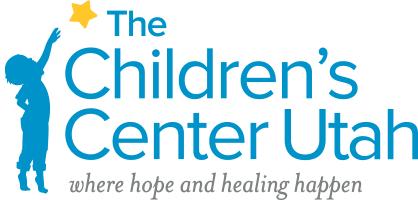SALT LAKE CITY — The fourth annual Ready! Resilient! Utah Early Childhood Mental Health Summit reviewed progress on policy recommendations outlined in previous summits on Tuesday.
The annual summit is a partnership between Gov. Spencer Cox and first lady Abby Cox with the Utah Children's Center which convenes leading experts, provides policy updates or concerns and discusses future-oriented solutions for improving mental health outcomes for Utah's children and families.
"I'm compelled to say, while I'll share some statistics, I want you to remember that we're talking about individuals. We're talking about infants, toddlers and preschoolers who are your children, your grandchildren," said Rebecca J. Dutson, president and CEO of The Children's Center Utah.
Approximately 10 to 20% of Utah children experience a mental health disorder in a given year, according to the Centers for Disease and Control Prevention. That means around 90,000 children are struggling with their mental well-being before entering kindergarten, explained Dutson. The numbers indicate Utah may have a higher need for early childhood mental health services based on several risk factors such as children in poverty, and children from racial and ethnic minority populations.
Other impactful statistics shared by Dutson include:
- Utah has the highest percentage of mothers with children under the age of 3 who report fair or poor mental health and the second-highest percentage of parents with children under age 3 who report not coping very well with the daily demands of raising children.
- In Utah, 58% of children ages 3 to 17 who have a clinically diagnosed mental or behavioral health challenge do not receive treatment or counseling.
- Utah has 1/3 fewer providers per 100,000 people than the average across the United States.
"While mental health needs have always existed among our children, now is the time to sharpen our focus upstream on early childhood mental health," said Dutson. "We in this room know there is hope because by working upstream to provide children and families and the providers who interact with those children with the tools they need to handle and manage their big emotions, we can literally change what happens downstream."
But what does changing outcomes downstream mean?
"National cost estimates of mental, emotional and behavioral disorders among youth are $247 billion per year in mental health and health services, lost productivity and crime in the youngest state in the nation. It's crucial that our state take action to address these needs," explained Spencer Cox. "Evidence-based trauma treatments return $3.64 per dollar invested."
The previous summit outlined eight policy strategies to address the ongoing crisis, including the following:
- Create a baseline estimate of the need for early childhood mental health services.
- Collaborate and coordinate with a wide variety of partners to support early childhood mental health through education, resources and early childhood caregiver and provider support.
- Increase early childhood mental health awareness, promotion and prevention-related activities, all of which can really serve to reduce the stigma of mental health.
- Increasing the integration of physical and behavioral health for children by expanding access to mental health screenings, assessments and treatment to Medicaid and all children including in school-based settings.
- Create incentives to help develop and retain a robust early childhood mental health workforce.
- Develop and provide early childhood mental health training for all early-childhood caregivers and providers. This is different than the earlier strategy in that it's focused on non-mental health providers.
- Estimate the long-term value of early childhood mental health care in Utah.
- Decrease disparities in early childhood mental health access and outcomes for different population groups.
Work groups convened to focus on three of the outlined strategies: creating a baseline estimate of the need for early childhood mental health services; increasing the integration of physical and behavioral health for children by expanding access to mental health screenings, assessments and treatment to Medicaid and all children, including in school-based settings; and increasing early childhood mental health awareness, promotion and prevention-related activities, all of which can really serve to reduce the stigma of mental health.
"The group decided we couldn't boil the ocean so we picked three that had the most interest," explained Dutson.
So, what's the progress that's been made in the three categories?
- In January, Utah was accepted into the third cohort of states for a technical assistance grant from Zero to Three. The nonprofit features leaders from various state agencies and organizations that connect around the country to develop policy and financing strategies to advance infant and early childhood mental health supports and services including promotion, prevention, assessment, diagnosis and treatment.
- The Utah Department of Health and Utah Department of Human Services merged to streamline access to Medicaid and reduce barriers between agencies.
- The implementation of 12 months of continuous coverage starting Jan. 1 for eligible children.
- A new CHIP benefit that will serve undocumented children and provide health care.
- A pending grant application for a patient-centered medical home model for complex children to receive their care, as well as a current process of investigating sites of care in schools.
"We cannot do this alone. It is a collective impact approach," said Dutson. "How are the children? Are the children all well? You make a difference. And together we're going to continue to improve the mental health outcomes for the children and families in our state and their caregivers and for the providers of all professions who interact with them."

